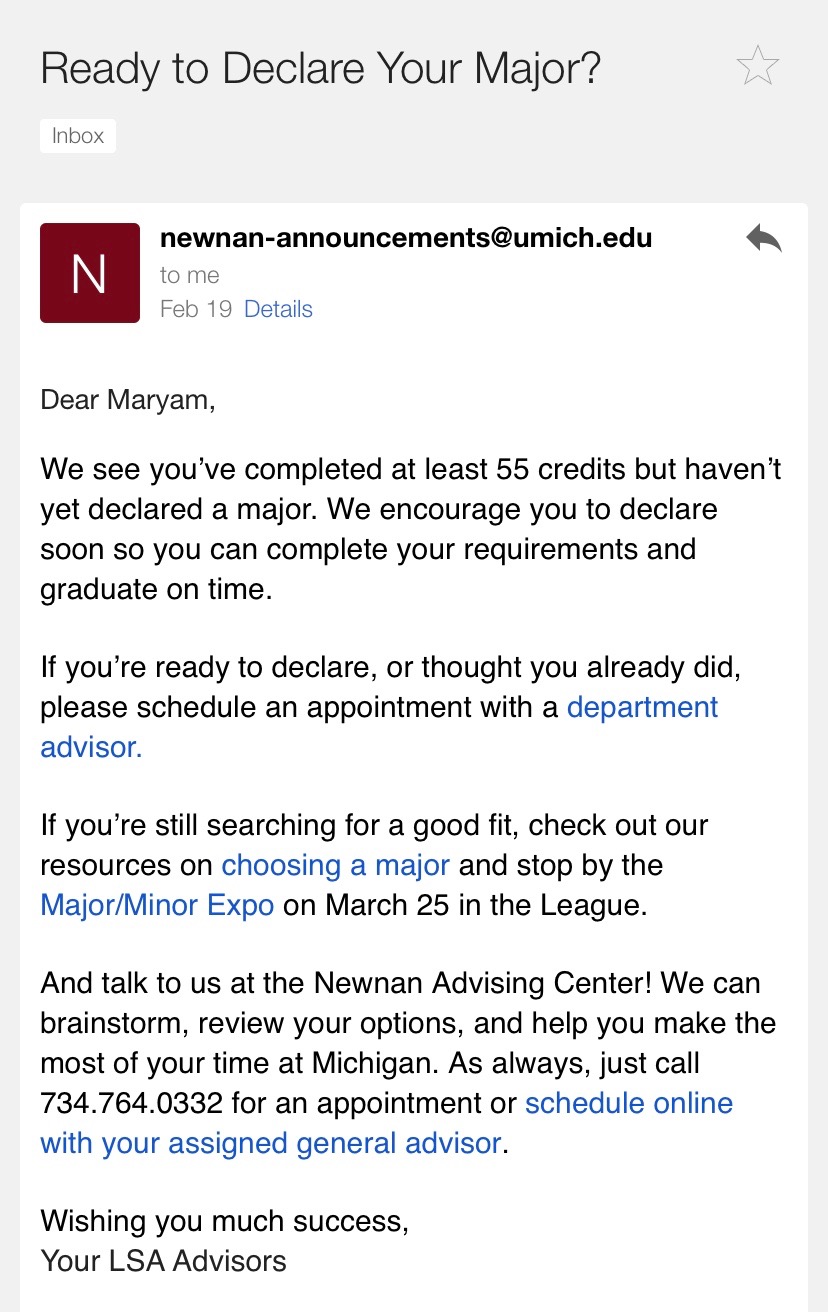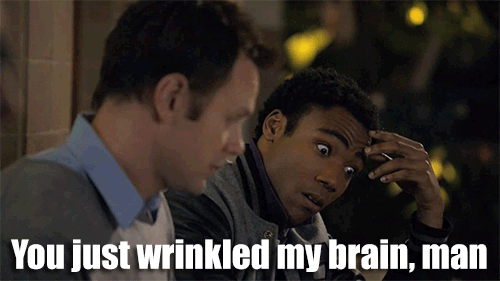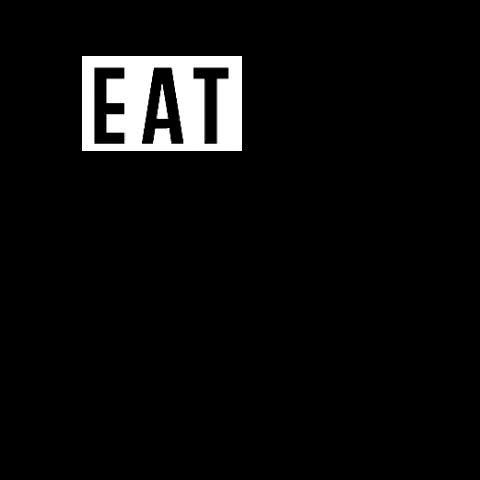Blog
Get the inside scoop about life at U-M and applying to Michigan from current student bloggers, Admissions staff, and guest faculty writers.

Get the inside scoop about life at U-M and applying to Michigan from current student bloggers, Admissions staff, and guest faculty writers.

A quick rundown of eight 100-level courses you might find on your schedule as an underclassman – what to expect, the pros and cons, and whether you should take it.
I mentioned in my last post that I’ve taken nearly every single intro social science course in the book. This is an exaggeration, of course, but I have taken a decent breadth of intro courses in an effort to find a major. Being able to try out different classes purely out of interest is a huge privilege and I recognize not everyone has that option.

If you’re in the same boat as I was as a first-year and sophomore, and not sure what you want to study, here’s a summary of the 100-level courses I’ve taken that you may (or may not) want to consider before you declare your major. Sorry to all prospective pre-med people reading this – I have yet to take a pure natural science course.

Pros: Workload isn’t too heavy and it counts as a natural science course! The material’s pretty interesting, especially if you’re someone thinking of going down the Biopsychology, Cognition, and Neuroscience (BCN) track.
Cons: If you’ve talked to anyone who’s taken this class, you know the pop quizzes are TOUGH.
Who should take it: Anyone looking to fulfill their natural science distribution or need an intro level psychology course for their major (think: Psychology, BCN).
Pros: All the exams are multiple choice (which I guess can be a con if you don’t like multiple choice).
Cons: Class wasn’t as focused on social conditions as I assumed, but I honestly didn’t really know what sociology was before taking the class.
Who should take it: Anyone interested in sociology or who needs it to declare their major (think: Sociology, Organizational Studies).
Pros: I think a lot of people have a hit or miss experience in the introductory econ sequence (mine was kind of mediocre). But in my opinion, it’s definitely worth taking 101 or 102 at some point if you didn’t have the opportunity in high school.
Cons: Tests can be relatively challenging if you’re not used to the format (usually consists of a mix of multiple choice and drawing out different economic scenarios on graphs).
Who should take it: Anyone looking to major in Economics; Philosophy, Politics, and Economics (PPE); Public Policy; or a related major.

Pros: Classes are small even though it’s one of the most commonly taken classes at U-M (I think there’s something like 80 sections and about 17 students per section per semester – you can do the math). It’s super easy to ask questions in class and you get to spend most of the time working on problems unlike a traditional lecture-based class.
Cons: It can be a little intimidating if you don’t have a strong calculus background and is obviously a lot of work (web work almost every other day and weekly/bi-weekly team homework on top of studying for exams and quizzes).
Who should take it: Anyone going into a STEM field or considering a major/minor in Economics.
Pros: The paper prompts are broad enough that you get to analyze a political issue that you find interesting, which is extremely refreshing considering most 100-level courses don’t often offer that kind of leeway.
Cons: At the same time, it’s a very typical 100-level course in the sense that you learn a lot, but only go into depth with a few topics. Not the best course to take if you want to avoid writing papers.
Who should take it: Anyone interested in politics or who wants to major in Political Science or Philosophy, Politics, and Economics.

Pros: Less intimidating than EECS 183. And coding can be fun! The professor, GSI’s, and TA’s were also consistently helpful over the Slack channel and in class, more so than I had ever experienced in any other 101 class.
Cons: Still a little intimidating if you have no experience programming.
Who should take it: Anyone who wants to build a foundational understanding of Python or apply to the School of Information.
Pros: Was surprised to learn how much I didn’t know about the media and how much intersection there would be between communications and the intro psych/soc classes.
Cons: The material isn’t always applicable if you’re solely interested in writing and reporting (to be fair, it isn’t trying to be a journalism class).
Who should take it: Anyone interested in the media and communications or looking to major in communications.
The fact is, an intro-level course is probably not going to be your favorite class ever at U-M, but we’ve all got to take them. Mutual suffering makes for good friendships and nights at the UgLi. Taking 100-level classes also will help you on your path to figuring out what you like and what you don’t want to study. I, for one, would be perfectly happy never having to take another math or communications class again, but I wouldn’t have known that if I hadn’t tried.

Maryam Masood (she/her) is a senior in the College of Literature, Science, and the Arts majoring in Organizational Studies. During the year, she keeps busy managing the Michigan Refugee Assistance Program and working as a trainer at Rec Sports. Outside of class and work, she can most likely be found making another cup of coffee, procrastinating at the CCRB, or rewatching Kim's Convenience on Netflix.